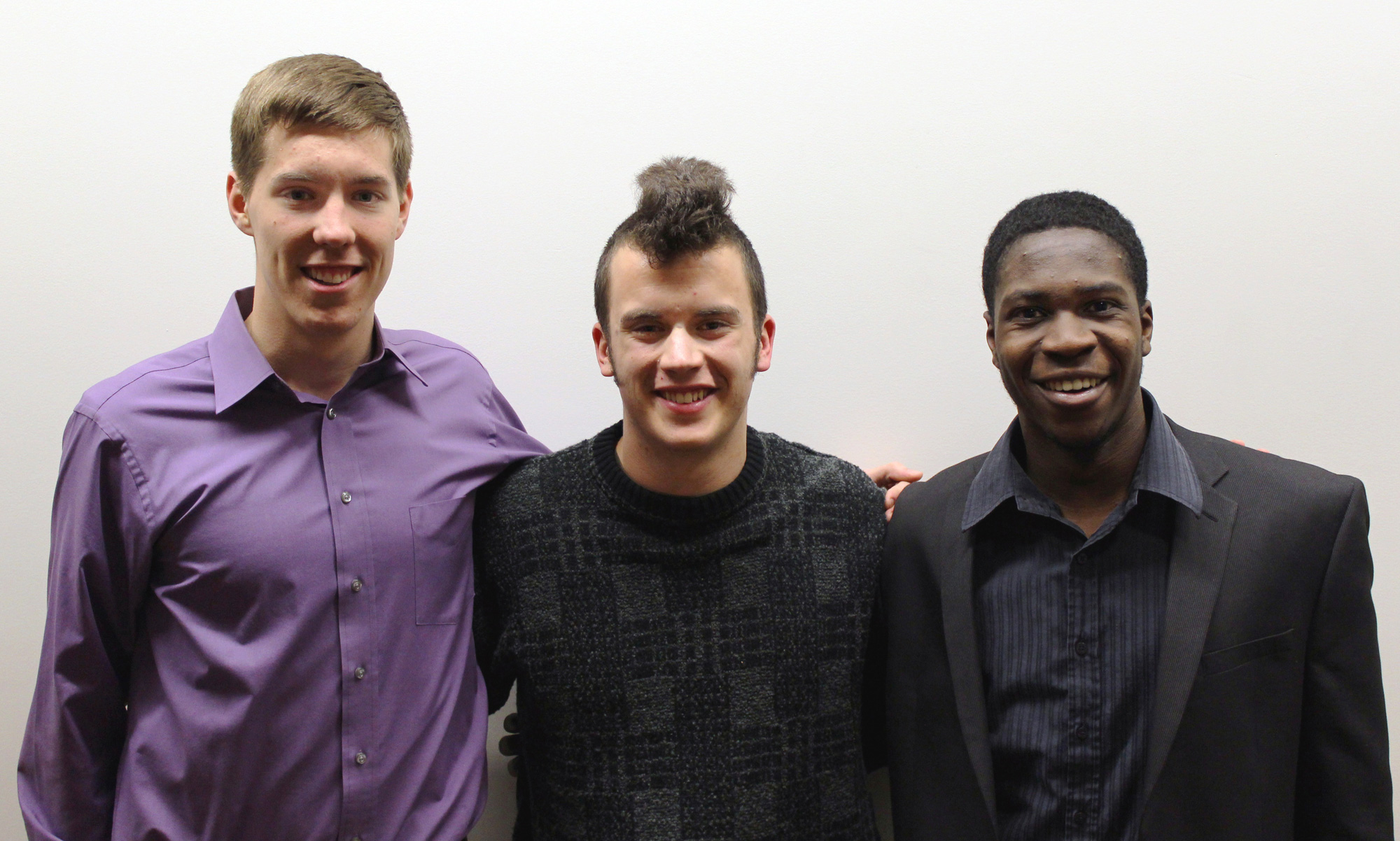Students will use summer break to work on winning technological concepts that help deter human trafficking worldwide

Three University Honors students will spend their summer working on technological solutions to deter human trafficking, after winning first and second place in a Campus Challenge run by the United States Agency for International Development (USAID) and partnering anti-trafficking agencies.
Wes Williams of Roanoke, Va., a junior majoring in applied economic management in the College of Agriculture and Life Sciences; Nicholas Montgomery of South Riding, Va., a sophomore majoring in mechanical engineering in the College of Engineering; and Kwamina Orleans-Pobee of Annandale, Va., a sophomore majoring in computer science in the College of Engineering, submitted two ideas to the contest held through the Challenge Slavery online community. The challenge asked for college students to develop creative technology solutions to help prevent human trafficking, rescue victims, and provide assistance to survivors.
The undergraduate team’s first-place concept, AboliShop, is a web browser extension that informs online shoppers if the items in their shopping cart are at risk for using forced or exploited labor in their development or distribution. Each item in the shopping cart is assigned a grade, based on an already established database developed by the anti-trafficking agency, Not for Sale.
Williams first heard of Not for Sale’s grading system at a conference and thought it could empower consumers to make better purchasing decisions. “Money talks,” Williams said. “When consumers are given the choice, we think they will make the right decision, which will push companies to reform.”
While the database already existed for consumers to use, the team thought it could be even more powerful. “It needed to be as easy as possible,” Montgomery said. “With the browser extension, it’s just one click and someone can get that information. If it requires too much research and energy to access the database, then the number of people who are actually going to use it goes down very quickly.”
The team was also one of three runner-up winners in the contest with an idea for a Mxit trafficking hotline. Mxit is the largest social network on the African continent and is available on basic feature phones, making it accessible for a large part of the African market share. The concept is to build this hotline into Mxit’s existing platform, where users would be able to send instant messages anonymously if they are trafficking victims or witnesses of possible trafficking.
The team recently returned from Washington, D.C., where USAID coordinated a series of meetings for the students with government officials and representatives from anti-trafficking organizations. They left with a better sense of where their prototypes may go next.
“The main takeaway, I think, was the ability to dream properly. I thought in some ways, they were dreaming even bigger than we were, which was really encouraging,” Williams said. “But they also showed how to dream efficiently. They knew how much the envelope could be pushed, but they also knew which envelope to pick up in the first place.”
Looking ahead, AboliShop holds the most potential for growing out of the prototype phase more quickly. The Mxit trafficking hotline could take longer because it requires significant infrastructure development, in addition to the design of the application.
The team will return to the nation’s capitol in late summer or early fall to talk about more concrete plans for implementation. Until then, the students will continue building out their visions – and raising awareness about human trafficking and slavery.
“I recently found out that there are more slaves right now than there ever have been in human history. That was shocking,” Orleans-Pobee said. “Right now, slavery is more of a fringe issue – especially because the picture people have of slavery is so different from what modern-day slavery really is. There has to be more awareness.”
“Stopping slavery is our only metric,” Williams said. “Regardless of what comes of this, efficacy is our only goal.”
Dedicated to its motto, Ut Prosim (That I May Serve), Virginia Tech takes a hands-on, engaging approach to education, preparing scholars to be leaders in their fields and communities. As the commonwealth’s most comprehensive university and its leading research institution, Virginia Tech offers 240 undergraduate and graduate degree programs to more than 31,000 students and manages a research portfolio of $513 million. The university fulfills its land-grant mission of transforming knowledge to practice through technological leadership and by fueling economic growth and job creation locally, regionally, and across Virginia.



